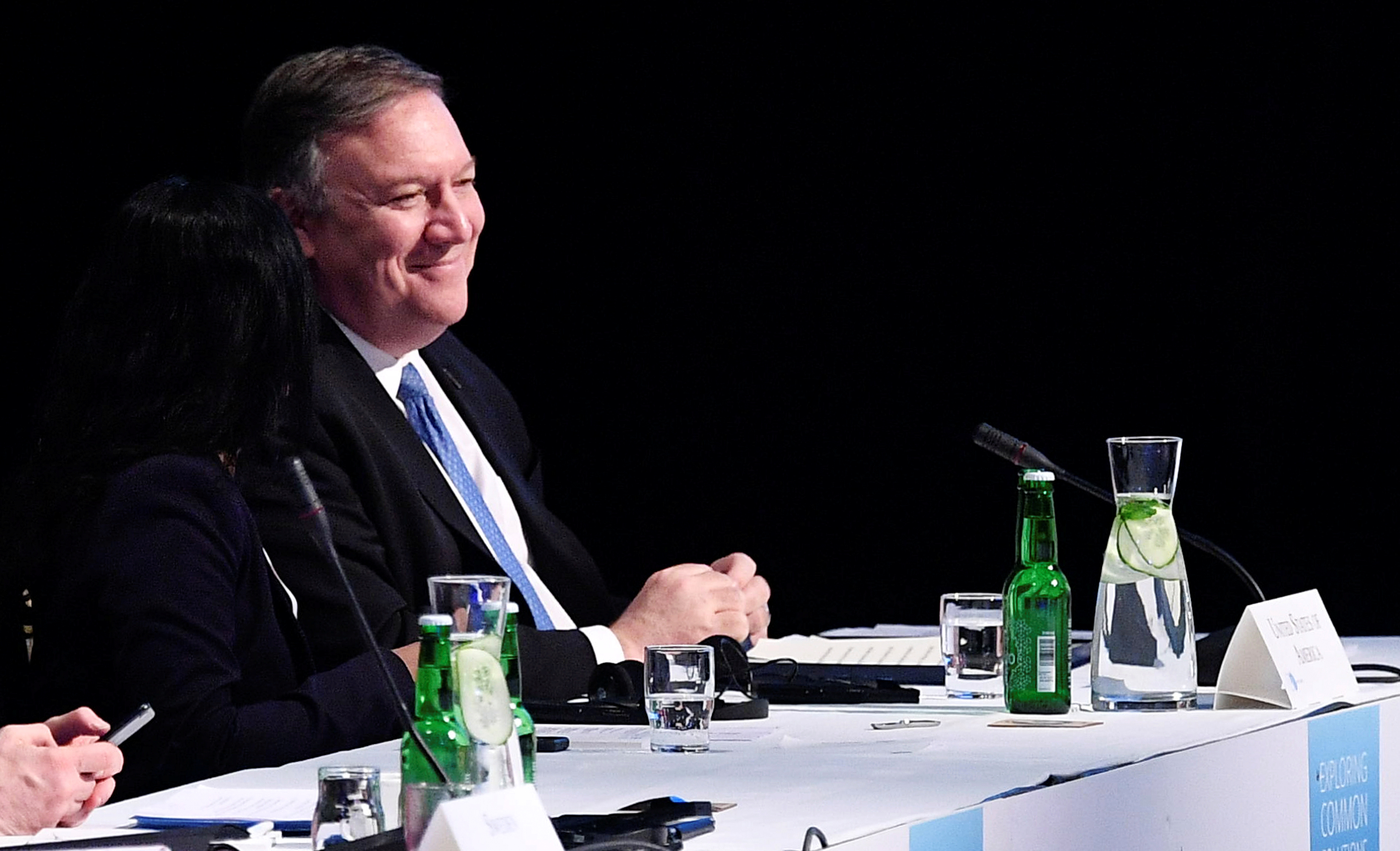Pompeo’s bombastic Arctic Council performance could prove an aberration — or a new normal
Pompeo's aggressive speech and obstructionism on climate change are out of step with the Arctic Council with perfectly aligned with the American far Right. If Trump wins a second term, expect to see more of it.

No, Mike Pompeo, the United States did not purchase Alaska from Russia in 1857. That happened a decade later, as every school child in Alaska learns.
And it was not a “Canadian snowplow racer” who joined an expedition to the North Pole in 1968, but a snowmobile racer.
The U.S. secretary of state gave the wrong date for the Alaska purchase and tangled the story of the 1968 Plaisted Polar Expedition in a speech in Finland that he called “Sharpening America’s Arctic Focus.”
But these were perhaps the most inconsequential mistakes in an error-filled pronouncement in which the 55-year-old Pompeo did all he could to isolate America from its Arctic neighbors.
The former Kansas congressman tried to recast the entire range of issues facing Arctic nations as a three-way military and commercial struggle featuring Russia, China and the United States, ignoring environmental, cultural, scientific and economic concerns of those who live in the region.
The Pompeo presentations before and during the summit in Rovaniemi reflect how the extreme views of the Republican Party have triumphed over science and dealt a serious setback to the diplomatic efforts of the Arctic Council.
The focus on confrontation, not collaboration, subverts the efforts of Arctic nations to confront the global threat of climate change.
But Pompeo, seemingly unaware of his contribution to Arctic Council subversion, thought he was referring to China and Russia when he warned, “We must not allow this forum to fall victim to subversion — from Arctic or non-Arctic states.”
Pompeo’s refusal to acknowledge or mention climate change, which surely pleased President Donald Trump, stands as a monument to ignorance and arrogance.
He takes a juvenile pride in never using the words “climate change,” while claiming the disappearance of sea ice means nothing more “opening new passageways and new opportunities for trade.”
The repetition of bombastic slogans and bizarre declarations, such as President Trump “knows this white expanse can also be green,” are reasons to worry about what Pompeo will do in the future.
The rapid pace of climate change in the Arctic has implications for the future of humanity and the planet, but he isn’t interested.
The melting of permafrost and the decline of sea ice could lead to unprecedented challenges, as any competent Secretary of State would understand.
In the language of diplomacy, Timo Soini, the minister for foreign affairs of Finland, which chaired the Arctic Council for the last two years, hinted at how the decision by the United States to ignore the obvious threat of climate change is viewed by other leaders in the Arctic.
“A majority of us regarded climate change as a fundamental challenge facing the Arctic and acknowledged the urgent need to take mitigation and adaptation actions and to strengthen resilience,” Soini said in his chairmanship statement.
That means the minority, the Trump administration, does not regard climate change as a fundamental challenge and refuses to acknowledge the urgent need to promote mitigation, adaptation and resilience.
This is a reversal of the position taken two years ago by then Secretary of State Rex Tillerson, who was no leader on climate change, but not one to ignore the weight of evidence, either.
He signed the Fairbanks Declaration recognizing “that the Arctic is warming at more than twice the rate of the global average, resulting in widespread social, environmental and economic impacts in the Arctic and worldwide,” and that there is a need for global action to reduce greenhouse gas emissions.
These environmental conditions haven’t changed, but the Trump administration has become more radical.
If Trump loses his 2020 race for re-election, the Pompeo approach to the Arctic will be a short-lived aberration. But if Trump wins a second term, these are not the last days of that vision of the Arctic.
Dermot Cole can be reached at [email protected].